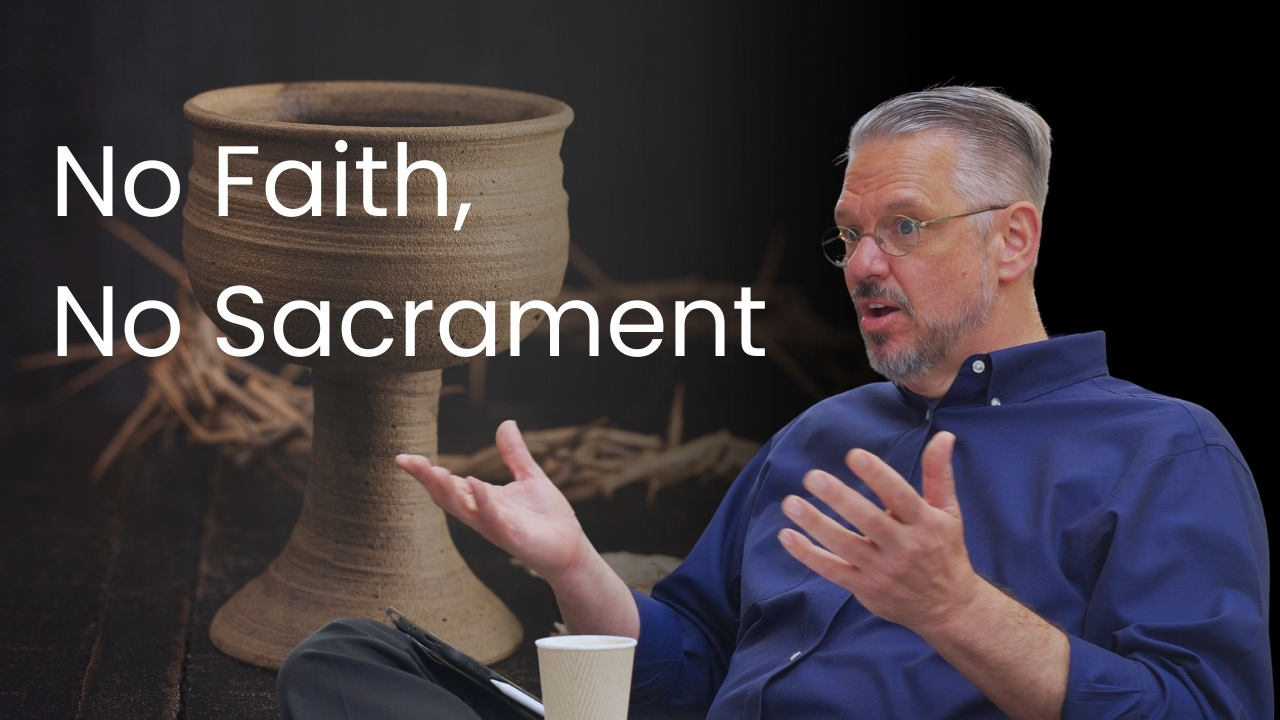The following is taken from an interview with Elijah Yoder conducted by Reagan Schrock.
In my growing up years, the importance of the principles of Scriptures in our lives, not just the practice, was stressed. In other words, you don’t just want to teach the next generation to wear a head covering. They need to understand the biblical principle and reasoning behind it. We have the practice (how we live); we have the principle (the scriptural mandate); then we have the Person of Christ. Some have accused the Mennonites of making the Bible the fourth person of the trinity, which obviously is a very wrong concept. We have the practice, beyond the practice we have the principle, but then we need to go beyond the principle to the Person of Jesus Christ. When you have the focus on the Person and who He is, then the principles and practices will come as a result.
The Protestant Fundamentalist tradition in the United States has put a lot of emphasis on Paul and his epistles, and much less on the Gospels and Life of Christ. Another tradition of Protestant Fundamentalists has been for people to “get saved”. The apostle Paul affirmed that we are saved by grace through faith (Ephesians 2:8). I don’t want to minimize that at all, but Jesus said, “follow Me” (Matthew 4:19). Christ’s emphasis while with His disciples was that they should be with Him (Mark 3:14). Jesus taught the twelve by His life, which is what we will have to do as well if we are going make disciples. We must follow Christ in life, not in doing “the right things” in order to look good to people around us. We need to take hold of the person of Christ, what He has done for us, and from there we can go to The Sermon on the Mount. All of the things in Matthew 5 that Jesus wants us to live out today have to come out of a relationship with Christ and wanting to follow Him in life.
Protestant Fundamentalism has made the doctrine of believing in Christ the key thing. If you believe in Christ and His death and resurrection, then everything is okay and you go to heaven. While believing is important, it is only because of Christ, because of what He has done. The key isn’t “belief”, but Jesus Christ. If you believe in an intellectual fact of what Christ has done for you, then you get saved and it doesn’t really matter how you live; but if you focus on the person of Christ you are going to want to find His principles. Out of those principles the practices will follow.
When applying Scripture, we can’t just take for granted how the previous generation applied it to their life and times. For example, in my growing up years, one of the big issues was that you shouldn’t go to certain places. As a result, my generation established some practices that they decided was best for the group. If my generation simply tries to give the next generation our standards, it’s not going to work. Today’s generation is growing up with very different dynamics. The world is quite different than it was for my generation or the generation before that. We have the person of Christ and the principles of Scripture, but the way we practice those principles may change.
Some groups, like the Amish, have pretty much taken their practices and stopped at about 1920. They’re still trying to live the way they did in 1920. What we don’t want to do as conservative Mennonites is to remain in 2018 and say, “Here is where we stop.” If we don’t adjust our practices to the times we are going to wind up decades down the road and be viewed as the Amish are today. We’ve got to focus on the person of Christ, followed by Scriptural principles, that will tell us how to live in our culture and time. How the principles are practiced might change from one generation to the next, but the underlying principles of Scripture are going to be the same.
Each generation must wrestle with issues of practice themselves and evaluate those issues by the light of the principles in the Person of Jesus. Some people think that if you have the Person of Christ in the principles, then living out the Christian life will come automatically. If that was the case, Paul would never have had to write Ephesians 4, 5, and 6. He spent chapters 1, 2, and 3 on relationship with Christ. Even once the relationship is established, we still need instruction on how to live out the principles. Paul gives very specific instructions and encouragement, but it comes after our relationship with Christ.
If our focus is just on the practice, it will become like a dead, dry flower that’s not going to do anything for anybody. But if it’s coming out of well-watered soil, it will be something that’s beautiful and attractive to the world around us. This is the result of a relationship with Christ.







Leave a Reply